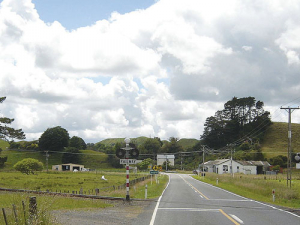Farmers are happy with KiwiRail’s new policy on private rail crossings.
The state-owned company is setting out to make a formal, legal record of all rail crossings; about 1300 private crossings exist along train tracks in New Zealand, with about 700 either undocumented or unauthorised.
KiwiRail spokesman David Gordon says it wants to help the public and its employees get home safe each day.
“So we need to know where people are crossing our tracks and ensure they are doing it safely.
“That requires a formal, legal record of all crossings, and we need to know they are up to standard in the approach, sight lines, signs and formation.”
Gordon says the policy follows talks with Federated Farmers and others.
He says KiwiRail is seeking only to recover its costs in this project. No set annual fee will be charged, as was proposed two years ago. Instead, most farmers will be charged only the cost of inspecting crossings on their land -- estimated at $50 to $100 per crossing, with inspections every two years.
Farmers will be responsible for the cost of any work needed make sure the crossing is safe to use. This generally includes removing vegetation to give adequate views, paying to maintain the road/track surface, and any other work required to meet safety standards and prevent damage to the track, says Gordon.
“The costs for this work will vary.
“We’ve worked hard to develop a policy that is fair, and which is also safe.”
Feds president Katie Milne says it appreciates that KiwiRail has listened to its views before setting the charges.
“However, there is a concern that some informal rail crossings will be closed because the safety concerns are considered too great. That’s going to be difficult for farmers if that was their only route for accessing parts of their farm,” Milne says.


















